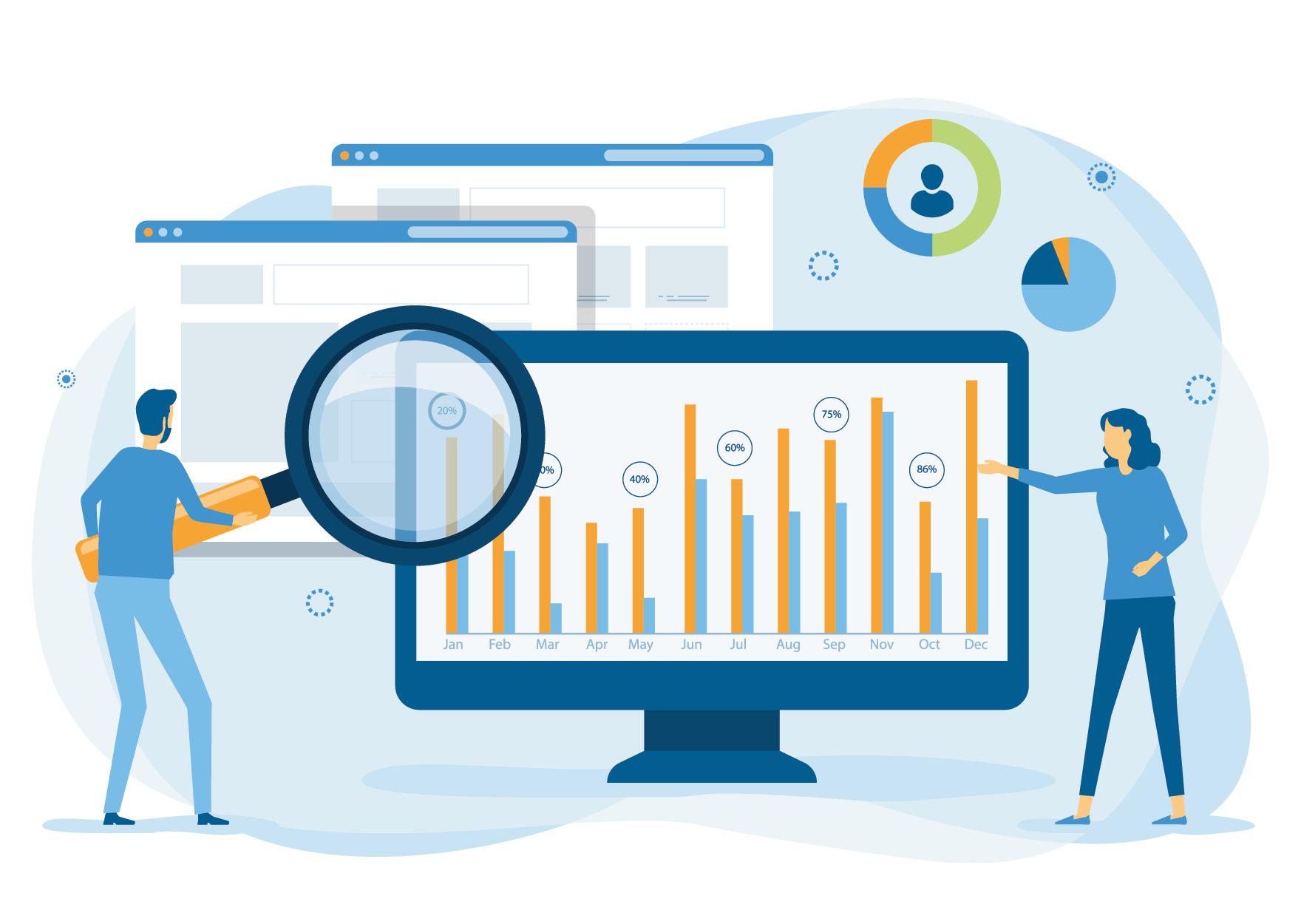Do you have a killer idea that you think would be perfect for launching a small business? If you believe what you see on TikTok, becoming an entrepreneur is just about as easy as posting a 30-second video. But in the real world, launching a small business can be a bit more challenging.
Starting a small business may seem daunting, but if you ask those same business owners if it’s worth the risk — few would trade the opportunity to shape their own destiny.
But where to start? Thankfully, you don’t need to have everything figured out before going out on your own. Successful small business owners are constantly learning from their mistakes — and improving their ideas and dreams along the way.
If you’re ready to take the leap and become a small business owner, keep reading.
Here’s what you’ll learn:
- What is a small business?
- How much does it cost to start a small business?
- How to start a small business in 10 steps
- What do you need to start a small business?
- FAQs
- Start small — but think big
What is a small business?
Small businesses are generally defined by the U.S. Small Business Administration (SBA) as independent operations having fewer than 200 employees. And the majority of small businesses in the United States have fewer than five employees, according to the U.S. Census Bureau.
But the number — or lack — of employees doesn’t necessarily define a “small business.” A business’s size can also be determined by the number of sales, the range of individual business locations, and other factors.
Along with size requirements, the SBA considers a company to be small if it’s:
- For-profit
- Independently owned and operated
- Not dominant in its field
- Physically located and operated in the U.S. (or a U.S. territory)
If your company meets the SBA’s definition of a small business, many government programs offer resources and local assistance for you to turn your dreams into reality.
Start Your Small Business With Big Things
How much does it cost to start a small business?
If you’re skilled in a certain trade — say, bookkeeping — you can launch a business with almost no money. But if your idea needs to be fleshed out and developed by researchers, scientists, and engineers, your startup costs can run into the hundreds of thousands of dollars and beyond. But most startup costs fall somewhere in the middle.
Factors that influence cost
A sole proprietor working from home is going to have very different startup costs than a Silicon Valley startup flush with venture capital funds. But it doesn’t matter if you have $1,000 or $1 million to launch your small business — you’ll need to have a budget.
Are you moving the clutter out of your garage to make room for a desk? Or are you going to hire an architect to remodel a warehouse space in a trendy neighborhood? Obviously, both businesses are going to have wildly different expenses.
Think about your budget and what you can afford to get started. And it’s good to assume that unexpected expenses will pop up along the way — especially in your first year of business.
What kinds of costs to expect
The SBA has a worksheet that will help you calculate typical expenses for a small business, including one-time expenses such as:
- Rent: This includes security deposit, first month’s rent and utilities. If you’re working from home, you can deduct a percentage of your rent or mortgage on your taxes.
- Improvement costs: Anything that you might spend on your physical place of business to make it suitable for work.
- Inventory: If you’re selling a product, you’ll need goods to keep up with customer demand.
- Employees: This includes payroll, payroll taxes, and health insurance.
- Professional services: Accountants, lawyers, and consultants will all need to be paid
- Supplies: Think office supplies, such as paper and pencils, and operating supplies, like computers and printers.
- Marketing: Business cards, stationery, flyers, and advertising all fall under this category.
- Miscellaneous: This includes licenses, permits, legal fees, signage, technology, and accounting software. Everything else — liability insurance, repairs, maintenance, and dues.
How to start a small business in 10 steps
The most difficult part of starting a small business is committing to your vision. It’s easier if you break down the process into small, achievable goals. Here are 10 steps that will get you on your way:
1. Do your research
If you don’t do basic market research before you launch your business, you may be down for the count before you even get started. Ask neighbors, friends, and even your barista if they would be interested in your product or service — and ask how much they’d be willing to pay for it.
Conduct competitor research, local and global searches, and even offer surveys to consumers to see what the need versus want ratio is.
2. Write a business plan
A business plan is your roadmap; it helps guide you as you start and grow your company. If you need capital to get started, most investors will want to review a business plan before they commit to any financing.
To organize your ideas, download and fill out a business plan template. A well-written business plan provides clarity, confirms the math, and helps you establish goals so your business has the best chance of success.
3. Choose a business name
Finding the perfect brand name is a vital step in launching a new business. But hiring a professional naming company doesn’t come cheap — it can cost as much as $100,000, according to Fast Company.
If that’s outside your budget, there are countless AI-powered business name generators available online, and Fiverr has entrepreneurs who will help brainstorm business names for three figures or less.
4. Decide on your location
Take a look at the taxes, zoning laws, and regulations in your location. You may find that operating your business in a different location could offer financial advantages. Review the fees, costs, and tax benefits of each state to see which location makes the most sense for your business. A strategic move may put you ahead of the game before you even open the doors.
5. Get your finances in order
Startup costs discourage many would-be entrepreneurs, but the reality is that many successful businesses got started with little more than a vision, discipline, and hard work. However, if you really need cash for that newly opened business bank account, here are four ways of getting that money:
- Self-funding: If you have the means, you may use your own earnings to kickstart your business or see out financial counsel to work it into your budget.
- Outside investors: For a stake in your company, relatives or venture capitalists may be willing to invest in your business.
- Small business loans: If you want to keep full ownership of your business, a small business loan may be the way to go.
- Crowdfunding: If you’re feeling creative and confident, try sites such as Kickstarter or GoFundMe to generate capital.
6. Take care of the legal stuff
Register your business in the state where it was formed — and make sure that you’re set up to pay state income and unemployment tax. Review whether your local municipality requires filing for a license or permit to operate your business.
To satisfy Uncle Sam, apply for an EIN from the IRS. Confirm that no one else is using your business name by contacting your state filing office or online database. Some business structures require using a doing business as (DBA) name, and you may be required to open a business bank account.
7. Develop a marketing plan
Once you have a terrific name for your company locked down, you’ll want to create an online presence for your business. Be consistent on your social media channels, ideally creating accounts on the channels — meeting them online where they are.
Develop a website that’s intuitive and filled with all the information your customers need. Your marketing may also include advertising campaigns and public relations.
8. Set up your CRM software
To enhance your marketing efforts and grow your small business, try customer relationship management (CRM) for Small Business. This will be your solution for storing and managing prospect and customer information such as contact information, accounts, leads, and sales opportunities — all in one single source of truth.
With Salesforce’s Starter Suite, you can start in minutes and easily manage your marketing, sales, and customer service as your business scales.
9. Launch your product or service
Congratulations: You’ve done all the hard work and you’re ready to introduce your product to the world. Make sure to announce your launch on social media — and consider throwing a media-friendly bash to celebrate.
10. Keep your customers happy
When you use CRM software, you can keep track and personalize support for all your customers. And happy customers are good for business — 80% of them say the experience a company provides is just as important as its products or services.
What do you need to start a small business?
The United States has more than 33 million small businesses, according to the U.S. Chamber of Commerce, and that number represents 99.9% of all U.S. businesses. And most of those small businesses started the same way — with an entrepreneur and an idea. But it takes more than just a dream to launch a small business.
So, where to start?
It’s time to take some notes. First, start outlining your business plan. If you’re stuck, ask yourself these four questions when developing your plan:
- Goals: What do you need to accomplish to achieve your vision?
- Methods: What are the steps you need to follow to get you there?
- Measurements: How will you determine when each objective has been met?
- Obstacles: What could throw you off course along the way?
Once you’ve written a business plan and are feeling confident, you’re ready to establish:
A name for your business
A great business name should succinctly identify your company and its audience. Brainstorm and get feedback from friends, family, and potential customers. And before you fall in love with your new company name, make sure that an established business in your industry isn’t already using that name.
A location for your business
Choosing where to conduct business is one of the most important decisions you can make for your small business. While staying close to home may be your first instinct, a change of venue may prove to be financially advantageous.
A business structure
For tax purposes and protection of personal assets, you need to choose a business structure that offers the right balance of legal protections and benefits. Common business structures include sole proprietorship, partnership, limited liability company (LLC), corporation, and cooperative.
A legal presence
If you want personal liability protection, legal protection, and tax benefits for your company, you’ll need to register your business with state and local governments.
Federal and state tax ID numbers
Your Employer Identification Number (EIN) works like a personal Social Security number, but for your business. You need an EIN to pay state and federal taxes for your company.
Licenses and permits
Whether your business needs to apply — and pay for — licenses and permits depends on your business activities, location, and government rules. Review regulations from city, state, and federal agencies.
A business bank account
Opening up a bank account exclusively for business use will help keep your personal finances separate, making life easier at tax time. There are several banks that will allow you to open a business checking account with a zero balance, but traditionally banks will require an opening deposit of anywhere from $1,000 to $25,000.
Start-up funds
Even if you open a business checking account with a zero balance, you’re going to want to have some funds to cover basic operating expenses. The SBA offers guidance on obtaining funding for your small business, including loans, grants, and investors.
Insurance
Starting a new business may feel like a gamble, but business insurance will help you cover your bet. The right insurance policy will help protect you against accidents, natural disasters, and lawsuits.
You should also consider:
Customer relationship management
A CRM platform keeps your customer data organized and provides the foundation to build connected customer experiences (that can be made even better through artificial intelligence). Starting with a suite of sales, service, marketing, and commerce tools is easy.
Invoice and billing software
While it is possible to keep track of your financial records on a traditional paper ledger, modern invoice and billing software makes the process much, much easier.
A graphic designer
A well-designed logo can make or break a business. The Nike “swoosh” was created by a graphic design student — and the $35 Nike initially spent paid for itself many times over.
A website
Many small businesses exist with just a presence on social media, but having a professionally designed website adds legitimacy to your business.
Marketing experts
Like graphic design, marketing expenses are costs that many small business owners initially want to avoid. But strategically investing in a marketing campaign can be a boon for a small business that wants to make noise in a crowded marketplace.
A Human Resources department
Once your business grows to a certain size, it’s time to create a human resources (HR) department — or, at least, to hire an HR professional. This professional can focus on things such as labor law compliance, employee recruitment, employee engagement and development, and compensation and benefits management while you manage your business.
An assistant
For most small businesses starting out, hiring an assistant to perform administrative and clerical duties is something of a luxury. If your budget is tight, consider a virtual assistant.
FAQs
What are some popular small business ideas?
If you have a unique idea for a small business, great. But some of the best small business ideas build on your strengths and experience. What do you love to do? What lights you up when you are helping the community? Do you have a pull to do something more?
What are the odds that my small business will succeed?
Starting a small business is no guarantee of success. Approximately 80% of small businesses survive their first year, according to the Bureau of Labor Statistics. The survival rate decreases to 50% after five years and 30% after 10 years.
What are some Fortune 500 companies that started small?
Not all big companies started with millions of dollars in venture capital. Some of America’s biggest brand names had far more modest beginnings. Apple famously got started in a Silicon Valley garage, while Mattel was building dollhouse furniture from picture frame scraps in its early days.
What are the most business-friendly states?
Before setting up shop in New York or California, consider launching your small business in North Dakota, Indiana, Arkansas, South Dakota, or North Carolina. These states offer the best conditions to start a business, according to Forbes Advisor.
What can I deduct for my small business at tax time?
(Almost) everyone knows that you can deduct entertainment and travel expenses as a small business owner. But you can also deduct software subscriptions, office furniture, and interest on small business loans, according to NerdWallet.
Start small — but think big
Taking the leap to start your own small business is just the first step on your entrepreneurial path. But you’re in good company. Nearly half of all U.S. employees are employed by a small business — and more than 80% of those small businesses are solo ventures, according to Forbes Advisor. There’s no better time than the present to start turning your dreams into reality.
Want to grow your new small business? Sign up for a Salesforce free trial.
































